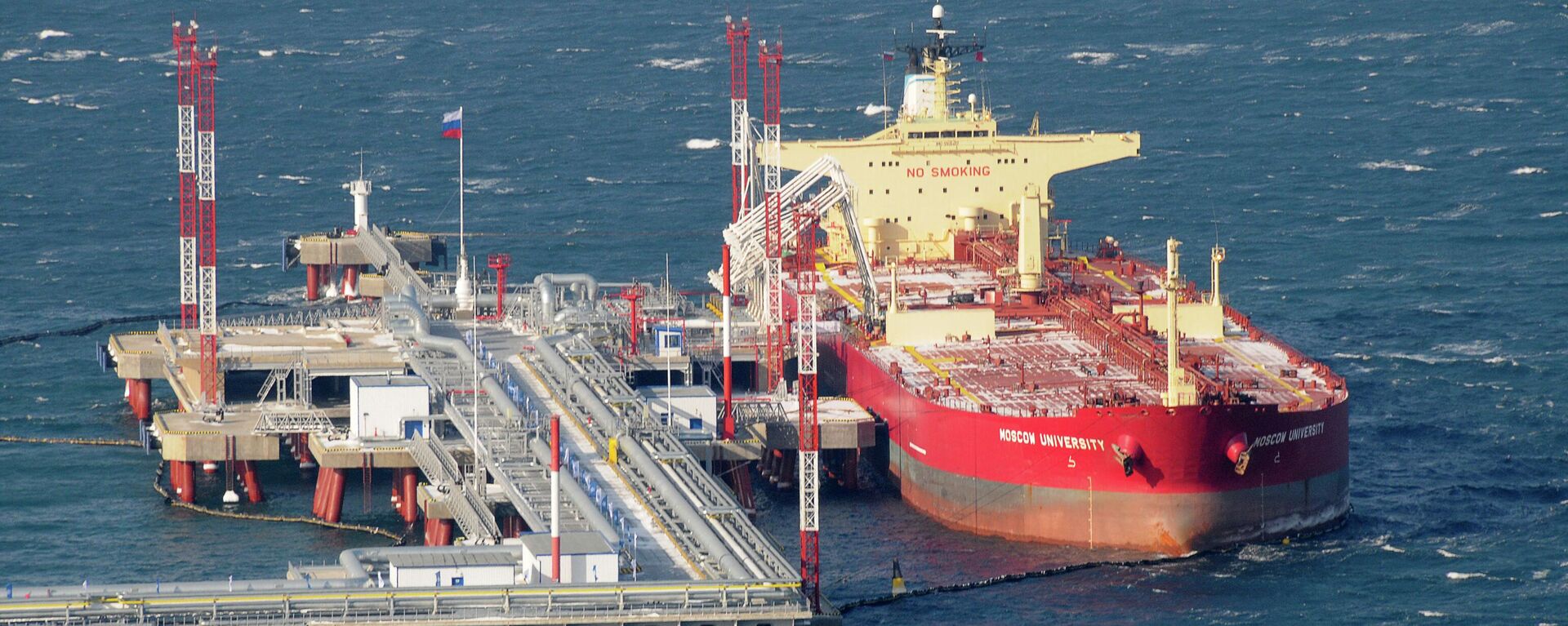https://sputniknews.in/20251127/india-to-keep-buying-russian-oil-in-long-term-despite-us-pressure-kpler-10127886.html
India To Keep Buying Russian Oil in Long-Term, Despite US Pressure: Kpler
India To Keep Buying Russian Oil in Long-Term, Despite US Pressure: Kpler
Sputnik India
India has been the largest importer of Russian seaborne crude, a trend that may continue in the long-term despite sanctions by the US to disrupt India-Russia... 27.11.2025, Sputnik India
2025-11-27T17:52+0530
2025-11-27T17:52+0530
2025-11-27T17:52+0530
business & economy
vladimir putin
piyush goyal
india
us
china
rosneft
https://cdn1.img.sputniknews.in/img/07e8/07/02/7753270_0:5:780:444_1920x0_80_0_0_abdc5e4efa6517f9b7687388d5fb0881.jpg
India and China will continue to purchase Russian oil in the long-term, even though there could be a brief decline in Russian seaborne imports to Indian refineries in the months of December and January, according to a projection by real-time data and analytics provider Kpler.Kpler said this week the "broader market impact is likely to remain limited over the longer term". "Unless more expansive secondary sanctions are introduced, India and China will continue to buy Russian oil," it said in a blog this week, in the wake of US Treasury sanctions against Rosneft and Lukoil kicking in on 21 November.In the case of India, Kpler highlighted that Indian refiners may pivot to non-sanctioned Russian entities and "opaque trading channels".Russian Deputy Prime Minister Alexander Novak said during a visit to Beijing this week that Moscow would continue to expand its seaborne and pipeline crude exports to China.Meanwhile, President Vladimir Putin is scheduled to undertake a visit to India for the India-Russia Annual Summit next month, providing an opportunity to both the countries to possibly discuss energy cooperation.At the same time, Commerce Minister Piyush Goyal said this week that India was close to finalising a trade deal with the US. At 50%, India is currently one of the highest tariffed nation by the US, with its America-bound exports facing an additional 25% penalty over New Delhi's imports of Russian oil.According to Kpler, India's import of Russian seaborne crude has averaged around 1.89 million barrels per day (bpd) so far in November, with expectation that Russian crude imports to the world's fourth-largest economy could hit a five-month high by month-end. The figures for November till date represent a 17% month-on-month (mom) increase as well as a 6% year-on-year (yoy) increase.
https://sputniknews.in/20251126/indias-crude-imports-from-russia-surge-17-in-november-2025-10118911.html
india
us
china
Sputnik India
feedback.hindi@sputniknews.com
+74956456601
MIA „Rossiya Segodnya“
2025
Sputnik India
feedback.hindi@sputniknews.com
+74956456601
MIA „Rossiya Segodnya“
News
en_IN
Sputnik India
feedback.hindi@sputniknews.com
+74956456601
MIA „Rossiya Segodnya“
Sputnik India
feedback.hindi@sputniknews.com
+74956456601
MIA „Rossiya Segodnya“
vladimir putin, piyush goyal, india, us, china, rosneft
vladimir putin, piyush goyal, india, us, china, rosneft
India To Keep Buying Russian Oil in Long-Term, Despite US Pressure: Kpler
India has been the largest importer of Russian seaborne crude, a trend that may continue in the long-term despite sanctions by the US to disrupt India-Russia energy cooperation.
India and China will continue to purchase Russian oil in the long-term, even though there could be a brief decline in Russian seaborne imports to Indian refineries in the months of December and January, according to a projection by real-time data and analytics provider Kpler.
Kpler said this week the "broader market impact is likely to remain limited over the longer term". "Unless more expansive secondary sanctions are introduced, India and China will continue to buy Russian oil," it said in a blog this week, in the wake of US Treasury sanctions against Rosneft and Lukoil kicking in on 21 November.
"The reasons are straightforward: Russian barrels remain highly cost-competitive for both Indian refiners and Shandong teapot refineries, and workarounds to maintain flows are likely to emerge. For example, a non-designated company could purchase crude from Lukoil and then re-sell it onward," Kpler said.
In the case of India, Kpler highlighted that Indian refiners may pivot to non-sanctioned Russian entities and "opaque trading channels".
Russian Deputy Prime Minister Alexander Novak said during a visit to Beijing this week that Moscow would continue to expand its seaborne and pipeline crude exports to China.
Meanwhile, President Vladimir Putin is scheduled to undertake a visit to India for the India-Russia Annual Summit next month, providing an opportunity to both the countries to possibly discuss energy cooperation.
At the same time, Commerce Minister
Piyush Goyal said this week that India
was close to finalising a trade deal with the US. At 50%, India is currently one of the highest tariffed nation by the US, with its America-bound exports facing an additional 25% penalty over New Delhi's imports of Russian oil.
According to Kpler, India's import of Russian seaborne crude has averaged around 1.89 million barrels per day (bpd) so far in November, with expectation that Russian crude imports to the world's fourth-largest economy could hit a five-month high by month-end. The figures for November till date represent a 17% month-on-month (mom) increase as well as a 6% year-on-year (yoy) increase.


